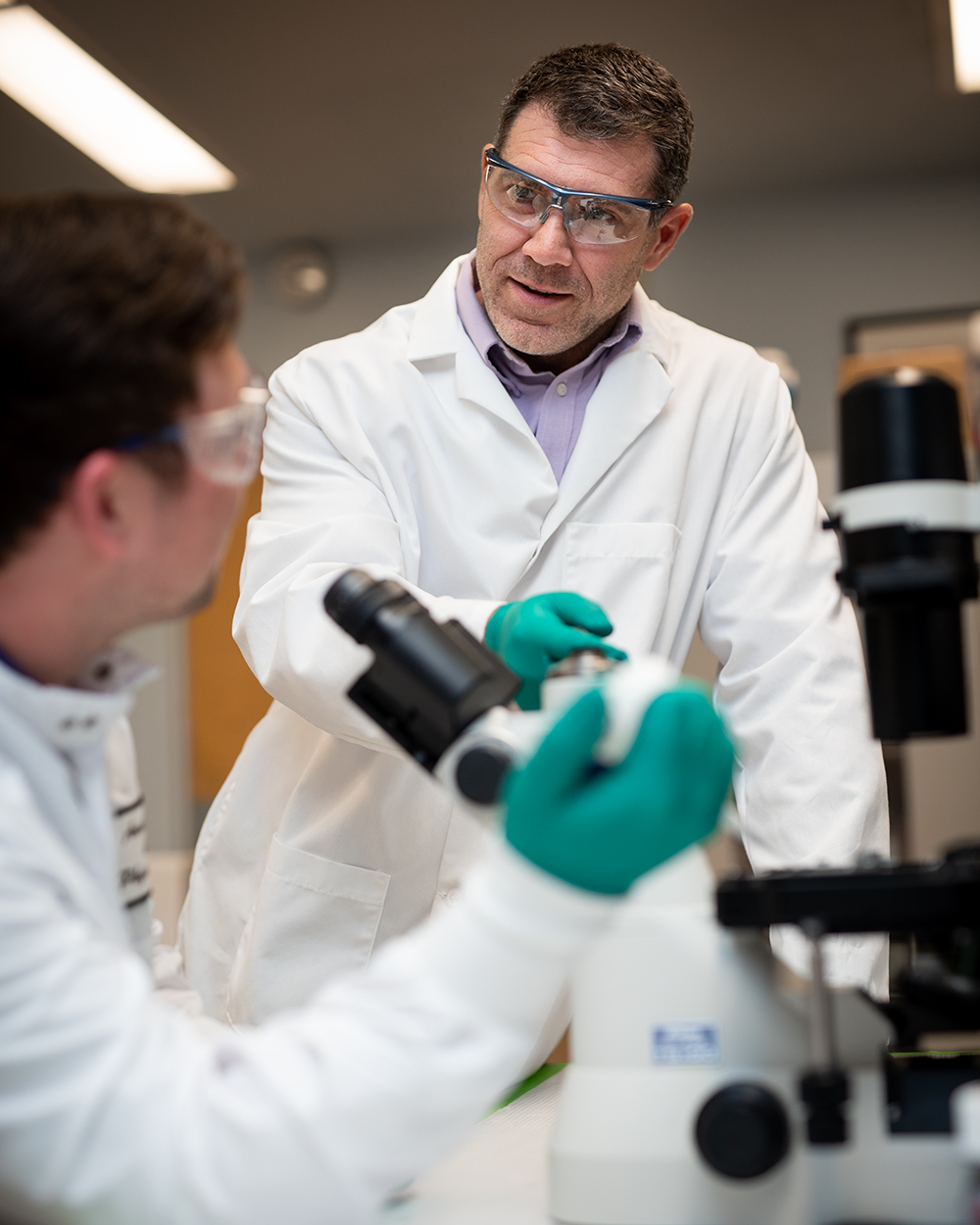Brad Behnke named Betty L. Tointon Dean of the College of Health and Human Sciences
 Brad Behnke has been appointed Betty L. Tointon Dean of the College of Health and Human Sciences at Kansas State University. | Download this photo.
Brad Behnke has been appointed Betty L. Tointon Dean of the College of Health and Human Sciences at Kansas State University. | Download this photo.
 K‑State News and Communications Services
K‑State News and Communications Services
Wednesday, Feb. 12, 2025
MANHATTAN — Following a national search, the Office of the Provost has appointed Brad Behnke as Betty L. Tointon Dean of Kansas State University's College of Health and Human Sciences, effective Feb. 16.
"Over the past two years as interim dean, Dr. Behnke has led the college through transformative change and collaborative efforts to develop the college's strategic plan,” said Jesse Perez Mendez, provost and executive vice president. "As a K-State alumnus, researcher, esteemed professor and proven leader with a passion for excellence, he is well positioned to elevate the college as a next-generation hub for health and human sciences education, research and outreach."
As chief academic and administrative officer, Behnke will oversee the college as it implements its strategic plan, launched in fall 2024 as part of the Next-Gen K-State initiative, which itself puts the College of Health and Human Sciences at the forefront of addressing community health and wellness.
The plan, rooted in K-State's strong tradition of health and human sciences over the past 150 years, looks to empower the college's faculty, staff and students in reestablishing and expanding the university's impact on the lives of Kansans.
As a native Kansan, Behnke is keenly focused on strengthening and reinvigorating K-State's presence in each of the state's counties, particularly in rural communities, where access to health services, education and resources are often limited.
"The innovations we create, in collaboration with other colleges on campus, can scale far beyond Kansas, reinforcing our role as a leader in applied research and outreach," Behnke said. "As a land-grant university, we are accountable to the people we serve. Our mission is clear: listen, engage, and respond."
Behnke began his tenure at K-State in 2014 as an associate professor of kinesiology and was promoted to full professor in 2017, later becoming associate dean of research in the College of Health and Human Sciences in 2021.
 As a researcher at K-State, Behnke led work investigating the manipulation of tumor microenvironments to enhance conventional cancer therapy outcomes; cardiovascular regulation of skeletal muscle and adipose tissue perfusion with age and pathological conditions including diabetes, heart failure and mechanical ventilation; and the effects of real and simulated microgravity on the cardiovascular system.
As a researcher at K-State, Behnke led work investigating the manipulation of tumor microenvironments to enhance conventional cancer therapy outcomes; cardiovascular regulation of skeletal muscle and adipose tissue perfusion with age and pathological conditions including diabetes, heart failure and mechanical ventilation; and the effects of real and simulated microgravity on the cardiovascular system.
He is the principal investigator for Cancer Research Collaboration of Excellence in Tumor Microenvironment Studies in K-State's Johnson Cancer Research Center.
Two of his research projects have received funding from the National Institutes of Health, or NIH, including a $456,000 NIH grant for work to understand the effect of heart failure and aging on diaphragm vascular dysfunction. Previous research projects received funding support from NIH, the American College of Sports Medicine, the American Heart Association, NASA and the American Cancer Society, among many other organizations.
In addition to over 100 peer-reviewed publications, Behnke has received various university and professional honors, including the 2021 Outstanding Graduate Faculty Award from the College of Health and Human Sciences; the 2018 College of Human Ecology Excellence in Research Award; the 2011 New Investigator Award from the Environmental and Exercise Physiology Section of the American Physiological Society; the 2009 New Investigator Award from the American College of Sports Medicine; and the 1999 Outstanding Student Research Award from the American College of Sports Medicine.
As an educator, Behnke has taught undergraduate and graduate classes for over 25 years. He has continued to teach an upper-level physiology course as interim dean.
Before joining the faculty at K-State, he served as a postdoctoral fellow in the College of Education and Human Development at Texas A&M University, an NIH NIA postdoctoral fellow at the Center for Interdisciplinary Research in Cardiovascular Sciences at West Virginia University School of Medicine and a faculty member at the University of Florida.
He had previously earned three degrees from K-State, including bachelor's and master's degrees in kinesiology and a doctoral degree in physiology from K-State's College of Veterinary Medicine.
###
Media contact
Division of Communications and Marketing
785-532-2535
media@k-state.edu